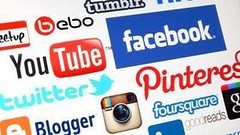Polyus Studios
Published 2 Apr 2021Don’t forget to like the video and subscribe to my channel!
Support me on Patreon – https://www.patreon.com/polyusstudiosUp until the late 1960s the Canadian Navy operated a modern aircraft carrier. It had an angled flight deck, steam catapults, and fighter jets. The jets were comparable to land-based aircraft like the CF-100 but could pack a vicious air-to-air punch with their Sidewinder missiles. They saw a brief service aboard HMCS Bonaventure before being retired without replacement. It was the McDonnell F2H Banshee, Canada’s premiere sea-based jet fighter.
0:00 Introduction
0:29 Canadian Navy aircraft carriers 1945 to 1957
2:13 New Fighter Selection
3:34 Specifications
5:07 Comparison to the CF-100
5:50 Operational Service
8:23 Accidents and RetirementMusic:
Denmark – Portland Cello ProjectResearch Sources:
CASM-Aircraft Histories – HMCS Bonaventure CVL-22 by Robert T. Murray
McDonnell Banshee – Royal Canadian Air Force – http://www.rcaf-arc.forces.gc.ca/en/a…
Magnificent Moments by Vintage Wings of Canada – http://www.vintagewings.ca/VintageNew…
McDonnell Banshee – Shearwater Aviation Museum – http://www.shearwateraviationmuseum.n…
HMCS Bonaventure: Canada’s Last Aircraft Carrier by Kevin Patterson – http://www.sevenyearproject.com/canad…Footage Sources:
HMCS Magnificent (CVL 21) – Majestic Class Light Aircraft Carrier – Camildoc – https://youtu.be/_Zvnz06-MRc
HMCS Bonaventure (CVL 22) – Majestic Class Aircraft Carrier – Camildoc – https://youtu.be/QmFD5bijrok#Banshee #CanadianAerospace #PolyusStudios
October 14, 2021
Canada’s carrier-borne fighters onboard HMCS Bonaventure; the story of the McDonnell F2H-3 Banshee
Tank Chats #128 | Panzer 61 | The Tank Museum
The Tank Museum
Published 4 Jun 2021Curator David Willey examines one of Switzerland’s first indigenously designed and produced tanks, the Panzer 61, put into service during the Cold War.
Support the work of The Tank Museum on Patreon: ► https://www.patreon.com/tankmuseum
Visit The Tank Museum SHOP & become a Friend: ►tankmuseumshop.orgTwitter: ► https://twitter.com/TankMuseum
Instagram: ► https://www.instagram.com/tankmuseum/
#tankmuseum #tanks
QotD: Americans’ perception of foreign economic threats
I am old enough to remember when almost everyone believed that the Russians were, as Khrushchev put it, going to “bury” us. Even leading economists such as Paul Samuelson were taken in by such nonsense. Of course, no such burial occurred, because just producing vast quantities of concrete, steel, and H-bombs is no evidence that anything of genuine value is being produced. Later Japan became the Godzilla that was going to eat the U.S. and European economies with its bureaucratic setup for picking and subsidizing “winners.” Before long that setup too collapsed in a heap and gave way to perpetual stagnation. Now almost everyone quakes in his boots while beholding the mighty Chinese economy. Again the hysteria has no firm foundation. An economy shaped and guided by government bureaucrats and Communist bigwigs by means of tariffs, subsidies, state-controlled credit, and state-owned industries cannot be a real growth miracle for long. This too shall pass.
And when it does Americans will learn nothing from their most recent mistake. If people really understood sound economics, they would not continue to make this same mistake again and again.
Robert Higgs, “China — Americans’ Economic Bugaboo du Jour”, The Beacon, 2018-12-19.






